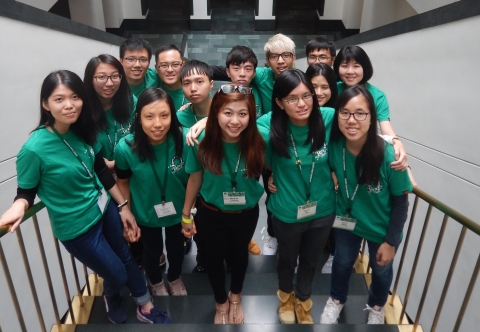A genetic engineering team formed by 13 undergraduate students of science and engineering at CUHK has recently won a gold medal at the International Genetic Engineered Machine (iGEM) 2015 Giant World Jamboree held in Boston, USA. This is the fourth time that a CUHK team has won gold in the annual premier synthetic biology competition worldwide among, this year, more than 280 student-led teams from around the world. The winning project designed by the CUHK team has extensive potential applications and may even help solve the recent lead-in-water problem in the city. The winning project of the CUHK team was named ‘Magnetosome Forming Azotobacter vinelandii’. The students devised a synthetic biology system to generate magnetosome, a kind of biological magnetic particles with hundred times surface-to-volume ratio than the current nanoparticles, inside a soil bacterium called Azotobacter vinelandii under an intracellular anaerobic condition. This innovative system can absorb metals in contaminated waters and soils, thus making it useful to tackle marine pollution problem or the lead contamination problem affecting Hong Kong recently. Potentially, it can also be used to extract any protein or enzyme, and therefore may find its applications in, for instance, food and pharmaceutical industries. With nitrogenase added, the system can also be used to improve the efficiency of biological fuel cells. This project has been supported by the UGC Teaching Development Grant. For more information about the winning project, please click the link below: http://2015.igem.org/Team:Hong_Kong-CUHK About iGEM Competition iGEM is an annual premier synthetic biology competition worldwide for high school, undergraduate and postgraduate students. It was established by the MIT in 2004 to foster students' learning in synthetic biology, promote collaboration among students and nurture biology talents. Participating teams are required to specify, design, build, and test simple biological systems made from standard, interchangeable biological parts. The accomplishments of these student teams often lead to important advances or provide solutions to tackle real-world problems in medicine, food and nutrition, energy, and the environment. For more information, please visit www.igem.org. |
|


